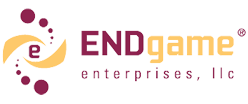Under The Union Bus
 Who, on the receiving end, can forget all of those annoying telemarketing calls during dinner? People answered the phone, thinking it was something important, only to find out that it was a pitch for the latest pocket blender. The calls were so irritating and the volume of consumer complaints so large that, eventually, the Federal Communications Commission intervened.
Who, on the receiving end, can forget all of those annoying telemarketing calls during dinner? People answered the phone, thinking it was something important, only to find out that it was a pitch for the latest pocket blender. The calls were so irritating and the volume of consumer complaints so large that, eventually, the Federal Communications Commission intervened.
The National Do-Not-Call Registry was the result. With some exceptions, Americans can ban these annoying calls permanently. The FCC made the Registry permanent in June 2008.
Today, the National Labor Relations Board, a different authority in a different White House administration, views exasperating home phone calls as positives. In a proposed rule published on February 5, union reps will be allowed to call non-union members at their homes during unionization election campaigns. The comment period on the rule closed on April 14. It will go into effect on May 12.
Companies will be required to disclose personal information about their workers including their full names, home addresses, home phone numbers and email addresses. The Board decided that the disclosures are necessary to remove unfair barriers and permit modern communication between the unions and the non-union workers. The disclosures will be made without worker consent.
Throwing workers’ privacy under the union bus is not the only change. Another will shorten election periods from an average of eight weeks to an average of three weeks. Shortening election periods will certainly intensify union campaigning. The home phone calls, as well as other contacts, will be persistent and persistently invasive.
The NLRB’s dismissal of workers’ privacy as necessary to remove unfair communication barriers is especially bothersome. Apparently, the Board missed the fact that the entire purpose of privacy is to be a barrier. The Constitutional right to privacy exists to protect individuals from unreasonable governmental intrusions in their lives, not to open the floodgates.
Yet, the NLRB, a government authority, is forcing union intrusions into peoples’ homes for the sole purpose of advancing union interests. But, since unions can conduct their campaigns in public locations, home invasions are unnecessary.
The Board may attempt to justify the intrusions because of the shortened election period, which also limits campaigning.
But, the NLRB itself shortened the period so the privacy invasion is a “necessity” of the Board’s own creation. Further, shortening the period is an attempt, according to critics, to find a cure for which there is no illness. The average eight-week election period is not lengthy and it does provide time for adequate campaigning without the need for privacy intrusions.
The Board may also try to rely on the common assumption that everyone’s personal information is available without much effort anyway. Pay a little money to an online snooping site and end up with a ton of information about your personal obsession. But, stockers getting information online is fundamentally different than labor unions obtaining it by government mandate.
Another pro-invasion argument is that union stocking for such a short period of time isn’t actually intrusive. Anything can be tolerated for only three weeks. To test that out, NLRB members can disclose their full names, home addresses and phone numbers to non-union workers. During election time, the workers can forward their calls to Board members’ homes. After a few calls, members might change their minds on how long three weeks can be.
Where will this all end? Union reps will know where workers live. If unions are rejected, will reps picket on front lawns? Follow workers to grocery stores? Post nasty grams on their Facebook pages? Harass them in more creative ways? Sounds far out? No farther out than the forced disclosure of personal information to unions in the first place.
Workers will need more than a Do-Not-Call Registry under the bus.







